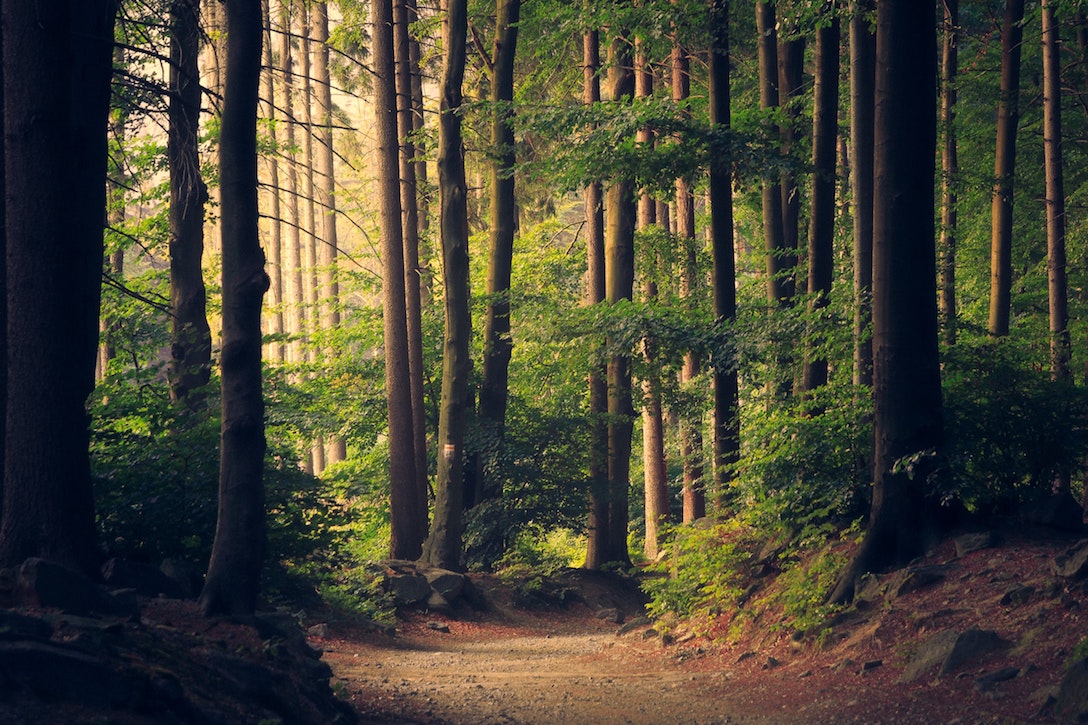 “And into the forest I go, to lose my mind and find my soul.” This quote from John Muir may sum up the benefits of forest bathing.
“And into the forest I go, to lose my mind and find my soul.” This quote from John Muir may sum up the benefits of forest bathing.
Forest bathing or shinrin-yoku in Japanese, has scientific and anecdotal evidence to improve your health. Shinrin in Japanese means forest and yoku means bath.
Why do we feel so much better when we are in nature? Why is it that we feel less stressed and have more energy just by walking in the forest?
American biologist E.O. Wilson believed that because we evolved in nature, we have a biological need to connect with it. And this affinity for the natural world is fundamental to our health. When we are in harmony with the natural world we can begin to heal. Our nervous system can reset itself. We are refreshed and restored.
Research in Japan on elderly people has found that people live longer when their homes are within walking distance of a park or green space.
Korean scientists have been tracking older women as they walk through forests and urban areas. When the women were walking in the forest, their blood pressure, their lung capacity, and the elasticity of their arteries improved, whereas an excursion into town showed none of these changes.
Take in the forest through your senses. When you connect to nature through all five of your senses, you begin to draw on the vast array of benefits including; reduced blood pressure, lower stress and increased relaxation, improved cardiovascular and metabolic health, lower blood-sugar levels, improved concentration and memory, lifted depression, anxiety and anger, improved pain thresholds, improved sleep, improved energy, boosted immune system, and, weight loss.
To engage your five senses; listen to the birds and breeze rustling in the trees, look at the different greens and the sunlight, smell the fragrance of the forest and breathe in the natural aromatherapy, taste the freshness of the air, touch the trunk of a tree or dip your fingers or toes in a stream or lie on the ground.
There’s more in the air of forests than just smells; negative ions. Ions are charged particles in the air. They are said to have energizing and refreshing effects, and to help increase mental clarity and our sense of well-being. Trees exist within a bioelectrical field which follows a rhythmical pattern. The voltage is lowest in the early morning and at its highest at noon. The seasons also affect the voltage.
The good news is that even a small amount of time in nature can have an impact on our health; take a picnic, take your shoes off – outdoors and indoors. You can listen to the sounds of the forest. A view of nature from your window or a picture of nature and green vegetation even on your computer or phone screen. It may be no coincidence that Buddha became enlightened while sitting under a bodhi tree. Try practicing yoga under a tree. Even practicing yogic breathing. Spending time in nature can boost problem-solving ability and creativity by 50 per cent.
On the list of cities in the world which have the most green space, two of those spots go to Canada, Toronto and Vancouver are 6th and 2nd respectively.
With files from The Hidden Life of Trees by Peter Wohlleben, Tree Yoga: A Workbook by Satya Singh and Fred Hageneder and Forest Bathing by Dr. Qing Li.